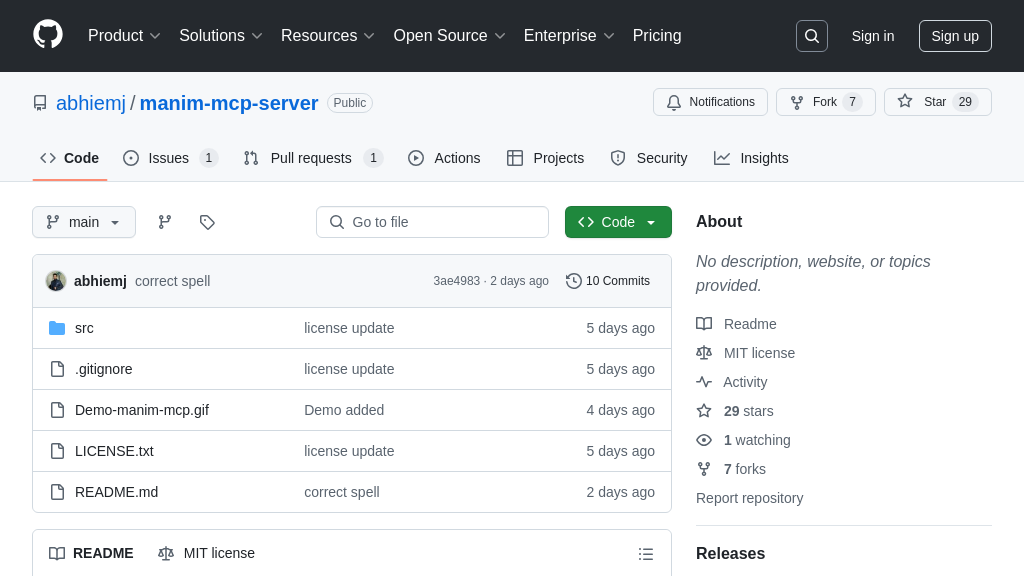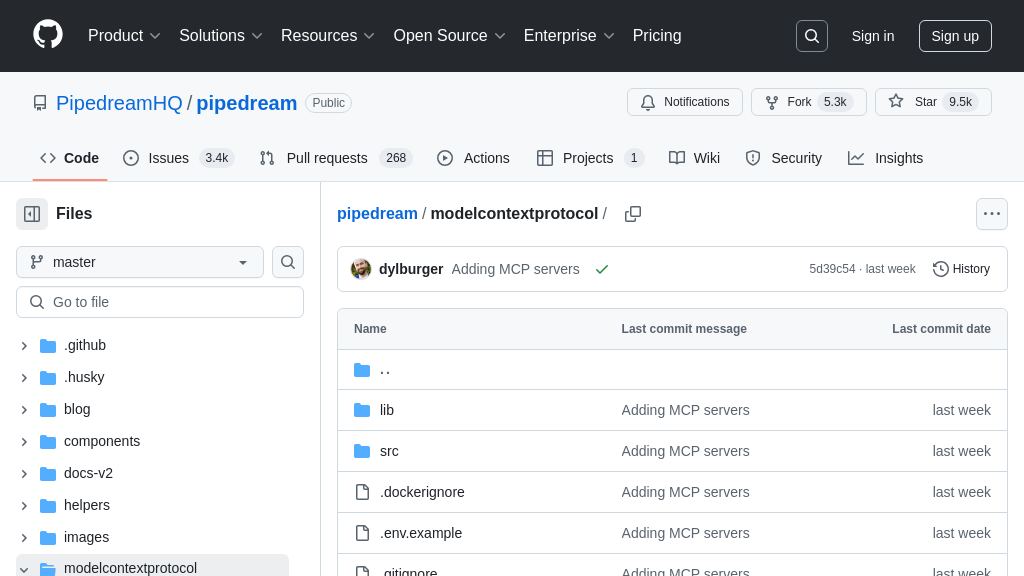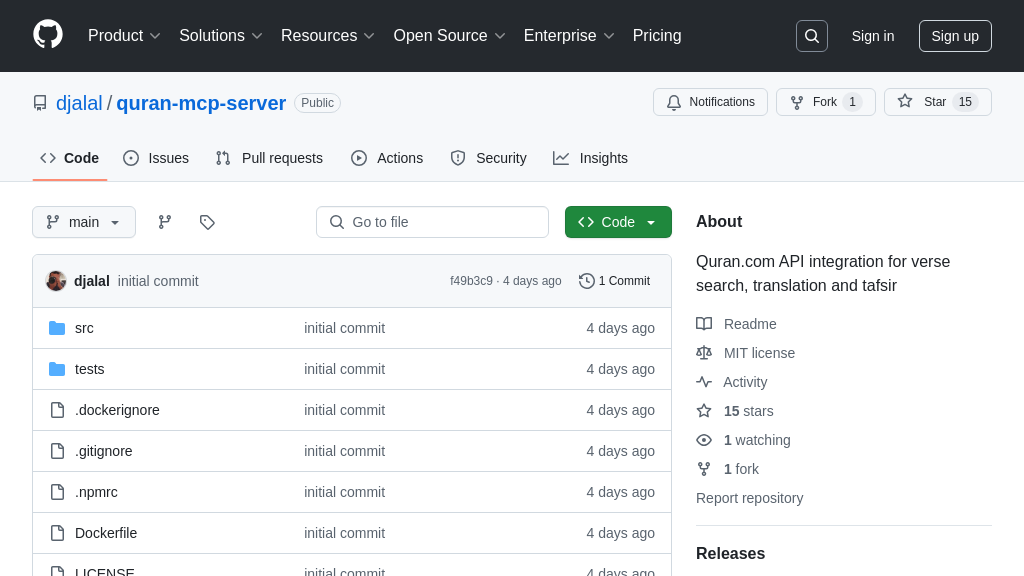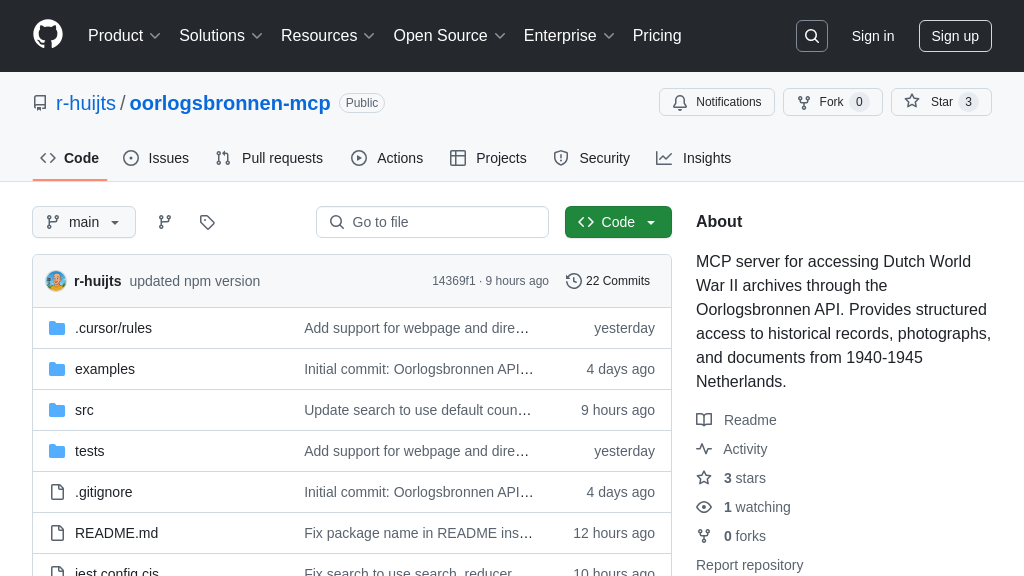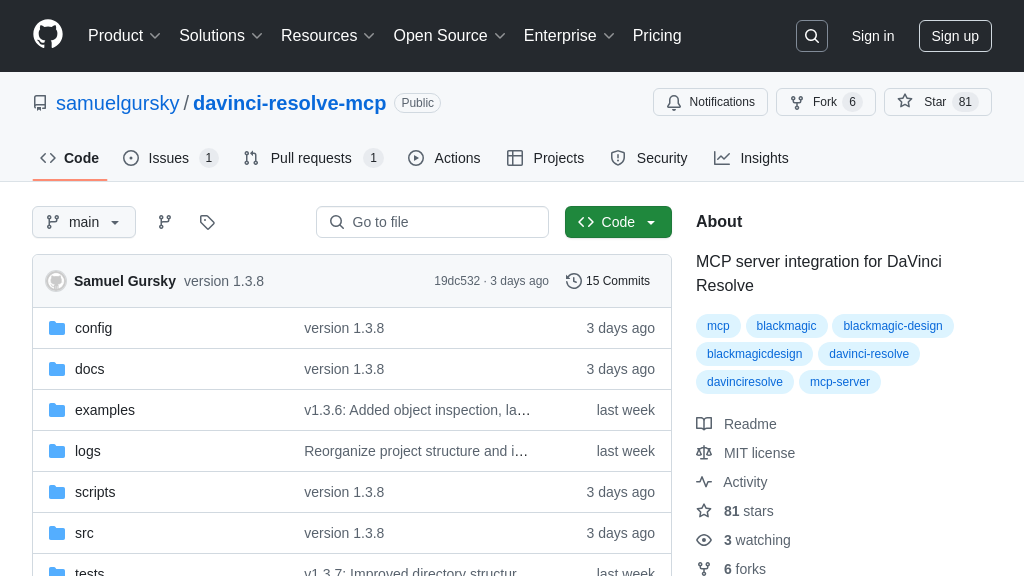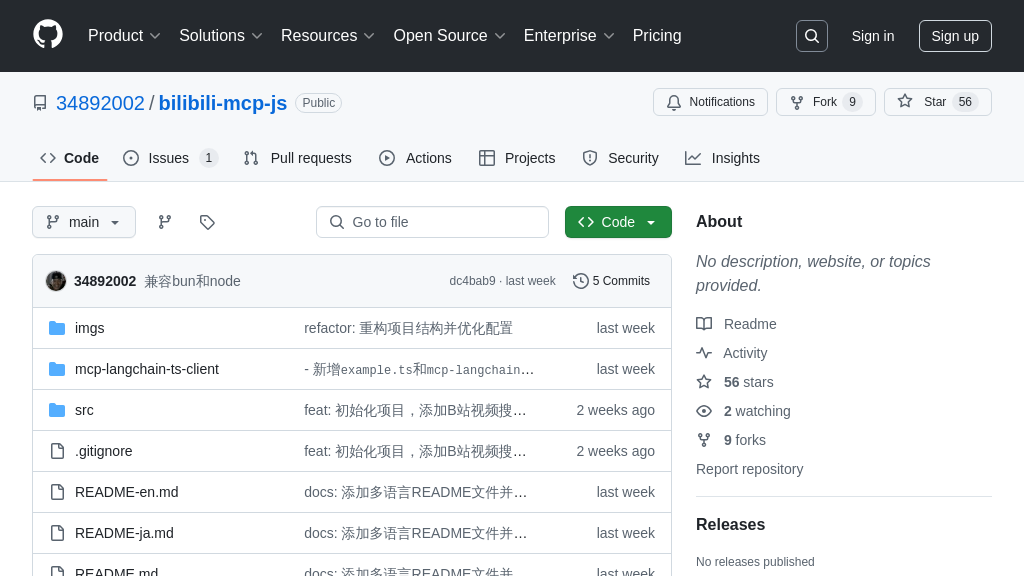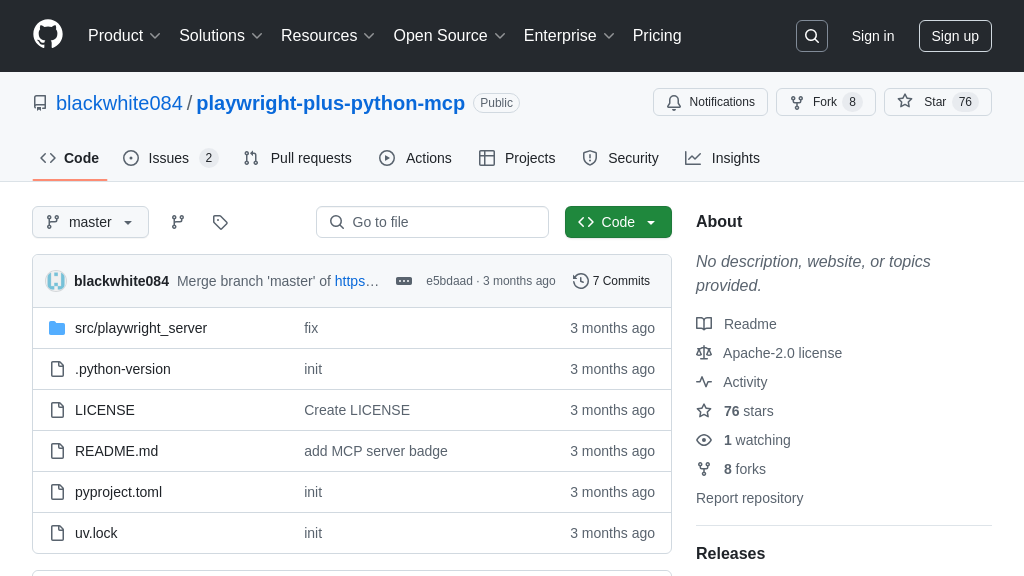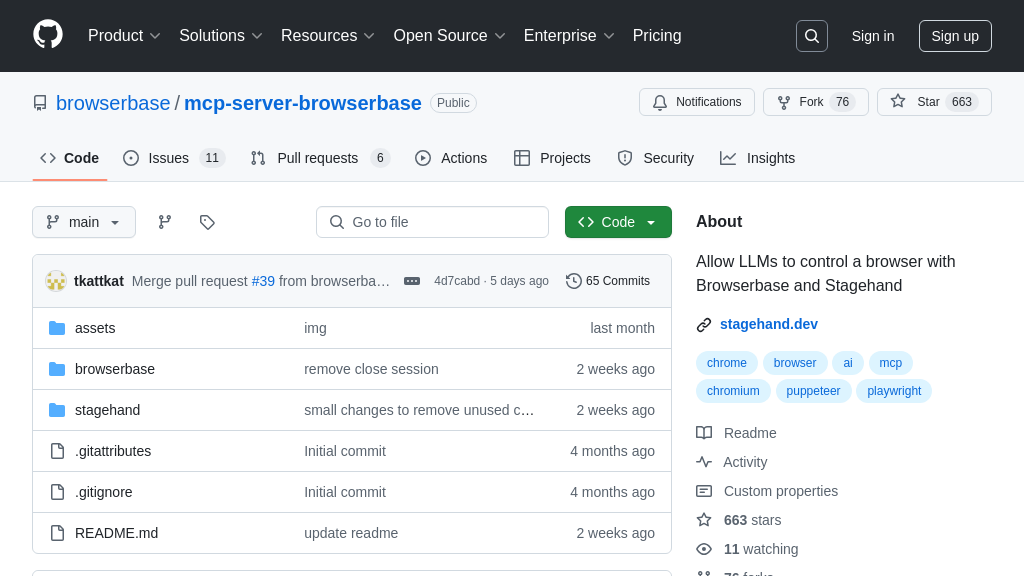mcp-virustotal
VirusTotal MCP Server: Security analysis for AI models via the VirusTotal API with automatic relationship fetching.
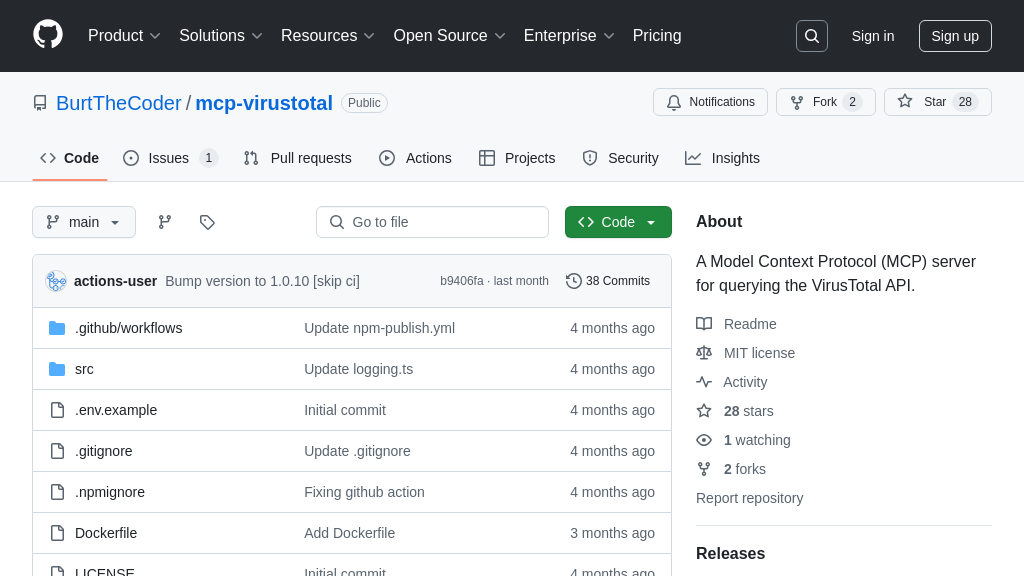
mcp-virustotal Solution Overview
The mcp-virustotal server is a valuable addition to the MCP ecosystem, providing AI models with robust security analysis capabilities. As an MCP server, it allows models to query the VirusTotal API, enriching their context with comprehensive security intelligence.
This solution empowers AI to analyze URLs, files, IP addresses, and domains, automatically fetching related data like contacted domains, downloaded files, and threat actors. By integrating mcp-virustotal, developers can equip their AI models with the ability to identify potential threats, assess risks, and make more informed decisions. The server offers both comprehensive report tools and detailed relationship analysis tools with pagination support, ensuring efficient and thorough investigations.
The mcp-virustotal server is easily integrated into MCP-compatible applications, such as Claude Desktop, via npm or Smithery. It requires a VirusTotal API key and offers comprehensive error handling, making it a reliable and user-friendly solution for enhancing AI security awareness.
mcp-virustotal Key Capabilities
Comprehensive Security Analysis
The mcp-virustotal server provides AI models with comprehensive security analysis capabilities by querying the VirusTotal API. It allows models to assess the risk associated with URLs, files, IP addresses, and domains. This is achieved through tools that fetch detailed reports, including scan results, file properties, and reputation data. The server automatically fetches relevant relationship data, such as contacted domains, downloaded files, and threat actors, providing a holistic security overview in a single request. This feature is particularly useful for AI models that need to make informed decisions about the safety of external resources or data sources. For example, an AI model processing user-submitted URLs can use this feature to identify potentially malicious links before accessing them, preventing the model from being exposed to harmful content.
Automated Relationship Data Fetching
A key feature of mcp-virustotal is its ability to automatically fetch relationship data alongside basic reports. This eliminates the need for multiple API calls to gather related information, streamlining the analysis process. For instance, when analyzing a file hash, the server automatically retrieves data about the file's behaviors, dropped files, and network connections. This enriched data set provides a more complete picture of the potential threats associated with the file. This is invaluable for AI models designed to detect and classify malware, as it allows them to identify complex relationships and patterns that might otherwise be missed. The automated fetching of relationship data simplifies the integration process for developers and enhances the accuracy of AI-driven security assessments.
Granular Relationship Queries
Beyond the automated relationship fetching in reports, mcp-virustotal offers dedicated tools for querying specific types of relationships with pagination support. This allows for in-depth investigation of particular aspects of a URL, file, IP address, or domain. For example, a security analyst might use the get_file_relationship tool to specifically query the "contacted_domains" relationship for a file hash, to understand which domains the file attempts to communicate with. The pagination support allows for retrieving large datasets of related objects in manageable chunks. This feature is beneficial for AI models that require fine-grained control over the data they receive, enabling them to focus on the most relevant information for their specific task.
Rich Data Formatting
The mcp-virustotal server presents analysis results and relationship data in a clear and organized manner. This rich formatting includes categorization of data, making it easier for AI models to parse and interpret the information. The structured presentation of data reduces the complexity of integrating VirusTotal's analysis into AI workflows. For example, the server clearly distinguishes between different types of threats, such as malware, phishing, and spyware, allowing AI models to prioritize responses based on the severity of the threat. This clear categorization and presentation of analysis results and relationship data enhances the usability of the server and improves the efficiency of AI-driven security analysis.
